PARTNER CONTENT
This content was produced by Automotive Manufacturing Solutions in partnership with MD ELEKTRONIK
MD ELEKTRONIK demonstrates why top quality and competitive pricing are critical to automotive production and supply
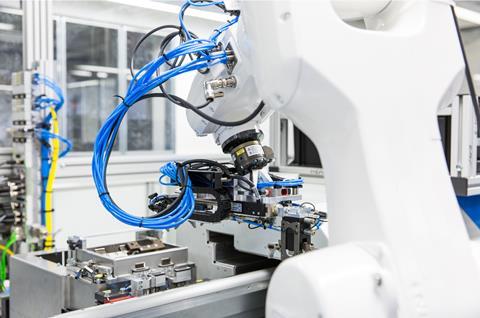
Automation is the future of cable assembly in the automotive sector
Automation is quickly transforming the production landscape, and is having a particular impact in areas such as cable assembly. As the demand for flawless quality and competitive pricing continues to rise, coupled with the growing complexity of automotive technologies, the need for fully automated processes is becoming more urgent. This shift goes beyond enhancing efficiency—it’s about ensuring automotive manufacturers can meet future challenges related to speed, customisation, and precision as vehicles become increasingly intelligent and autonomous.
Consistent quality and speed: the role of automation
In the automotive sector, where just-in-time (JIT) production is crucial, maintaining high standards of quality and ensuring timely delivery are non-negotiable. Suppliers must be able to produce and deliver components quickly and with absolute precision. They also need to adapt to rapidly changing demands and tighter deadlines, which can often be unpredictable.
Automation is key to achieving these goals. By integrating highly automated processes, manufacturers ensure continuous production quality, especially in areas that were previously dependent on manual labour or semi-automated techniques. Automation also provides the flexibility to meet fluctuating market demands while maintaining consistent output, allowing suppliers to stay competitive in a demanding industry.
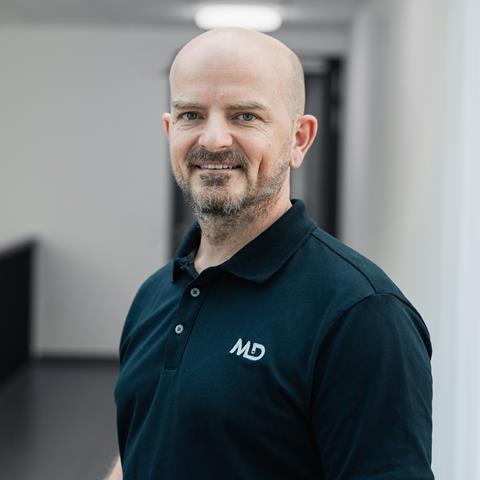
“The precision required for modern cable assemblies far exceeds human capabilities. In fact, certain products can only be manufactured through automated processes”
- Karl Ott, Director Technology at MD ELEKTRONIK
The evolution of automation in manufacturing
Automation has been a driving force in industrial production for decades, with robots revolutionising repetitive tasks in manufacturing. However, as technology advances, automation is evolving even further. The integration of real-time data processing and control technologies is enabling even more sophisticated automated systems, powering automotive production processes like never before.
In the automotive industry, automation reduces human error, increases precision, and enhances speed, especially in high-volume production areas like cable assembly. Tasks that require precision beyond human capability such as the assembly of intricate cable systems, can now be performed with extreme accuracy through accurate, time-saving, automated processes. This advancement ensures consistent quality and allows manufacturers to meet increasing demand while reducing labour costs.
”Today, approximately 80% of MD ELEKTRONIK’s products are produced and tested through fully automated processes, ensuring high quality and operational efficiency”
Meeting the demands of modern automotive manufacturing
As automotive manufacturing becomes more complex, suppliers must guarantee a high level of standardisation while maintaining flexibility to accommodate ever-changing customer needs. This includes handling varying production volumes and offering customised product variants. Manufacturers are also under pressure to bring new products to market more quickly than ever before.
Automation enables automotive suppliers to address these challenges by providing the flexibility to adapt to changing conditions. Whether it’s a sudden shift in customer demand or a variation in the quality of raw materials, automated systems can quickly adjust to ensure uninterrupted production. Additionally, automation allows manufacturers to optimise production closer to the customer, reducing transportation times, minimising environmental impact, and further improving efficiency.
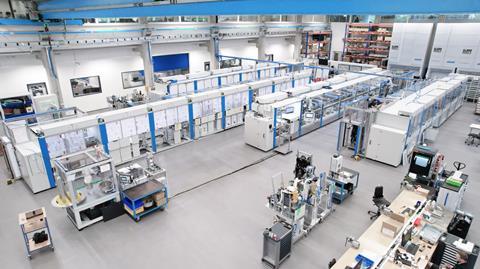
The Road to Car 3.0: miniaturised data cables for the autonomous future
The automotive industry has seen remarkable advancements over the past century, from basic mechanical improvements to the integration of electronics for driver assistance systems. However, we are now entering a new era of mobility with the development of autonomous vehicles, or “Car 3.0.” These vehicles are not only capable of self-driving but are also interconnected with a vast network of systems, such as smart infrastructure and home automation, enabling real-time data exchange.
To support this transformation, vehicles require an advanced network of sensors and a robust software infrastructure to process vast amounts of data in real-time. Technologies such as LiDAR and radar systems are playing an increasingly critical role in ensuring that autonomous vehicles can operate safely under all conditions.
However, these systems also demand an unprecedented level of data transfer, which requires sophisticated, miniaturised cable assemblies to handle the increased flow of information.
The shift to autonomous driving brings new challenges to the cable assembly sector. With more sensors and higher data transmission requirements, the need for smaller, more efficient cables is growing. This miniaturisation requires manufacturers to adopt tighter tolerances and more accurate processes, driving the move from manual to fully-automated assembly systems that can meet the stringent demands of tomorrow’s vehicles.
”With over 25 years of experience, MD ELEKTRONIK has developed a robust portfolio of automated systems that are designed to meet the complex and evolving needs of the automotive sector”
Responding to new market trends
Several trends are reshaping the automotive industry and presenting new challenges for suppliers. First, the growing demand for diversified vehicle models has led to an increase in the number of product variants, each requiring different components. The swift change has also resulted in smaller production batch sizes and more frequent customer orders.
Additionally, the trend toward localised production is gaining traction. Manufacturers are increasingly setting up decentralised production facilities near their customers to reduce lead times and transportation costs. The trend is complemented by the need for shorter product development cycles, as automotive manufacturers aim to bring new models to market faster than ever before.
To meet these demands, automation must become even more adaptable. Hybrid systems that integrate both old and new technologies in a single assembly line are becoming commonplace, as is the need for highly customisable components, such as anti-rattle solutions and specific installation markings for different vehicle models.
Visit MD ELEKTRONIK here.
MD ELEKTRONIK’s approach to automation in cable assembly
MD ELEKTRONIK, a leader in automotive cable assembly, is driving innovation in automated production processes. With over 25 years of experience, the company has developed a robust portfolio of automated systems that are designed to meet the complex and evolving needs of the automotive sector. Today, approximately 80% of MD ELEKTRONIK’s products are produced and tested through fully automated processes, ensuring high quality and operational efficiency.
MD ELEKTRONIK’s automation strategy is multi-faceted. For high-volume standard products, fully automated production lines are utilised, while mid-range production runs benefit from highly automated processes.
For more specialised, low-volume products, the company employs semi-automated systems. This tiered approach allows MD ELEKTRONIK to cater to a wide range of customer needs while maintaining the flexibility required in today’s fast-moving automotive market. To support this level of automation, MD ELEKTRONIK has developed advanced planning and production systems that manage tens of thousands of customer orders and millions of products each year.
The company’s machinery portfolio, which includes cutting-edge robotics, processing technologies, and quality control systems, is constantly being refined to optimise performance and respond to the dynamic needs of its customers.
Empowering the workforce for an automated future
With automation swiftly reshaping the manufacturing landscape, it is also transforming the roles of employees within the industry. At MD ELEKTRONIK, the knowledge and expertise required to operate and maintain highly automated systems are developed in-house. Through comprehensive training programs that span months and even years, employees are able to gain the technical skills required to manage and optimise these complex systems.
MD ELEKTRONIK is committed to the continuous development of its workforce, ensuring that employees have the skills necessary to thrive in an increasingly automated environment. By investing in both technology and people, MD ELEKTRONIK is positioning itself as a leader in the future of automotive cable assembly.
To find out more about their solutions, visit MD ELEKTRONIK here


















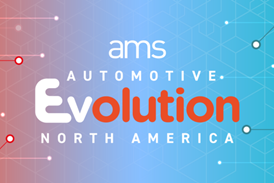









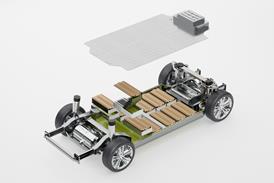
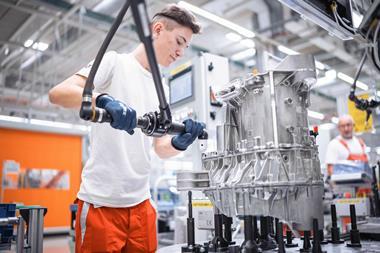
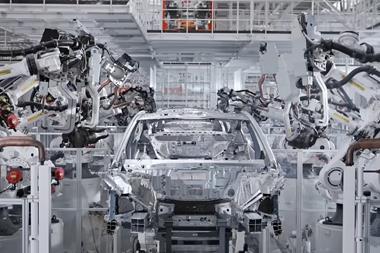
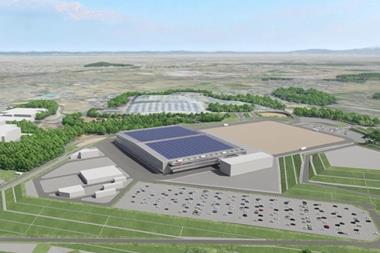

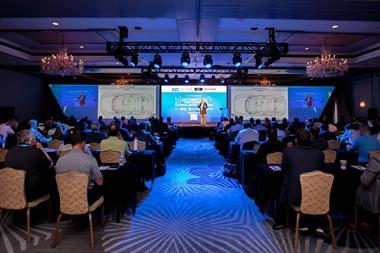
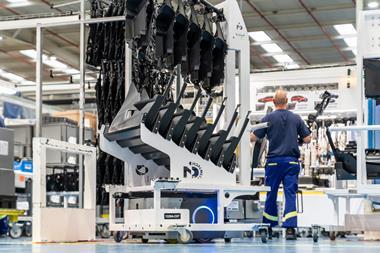



No comments yet